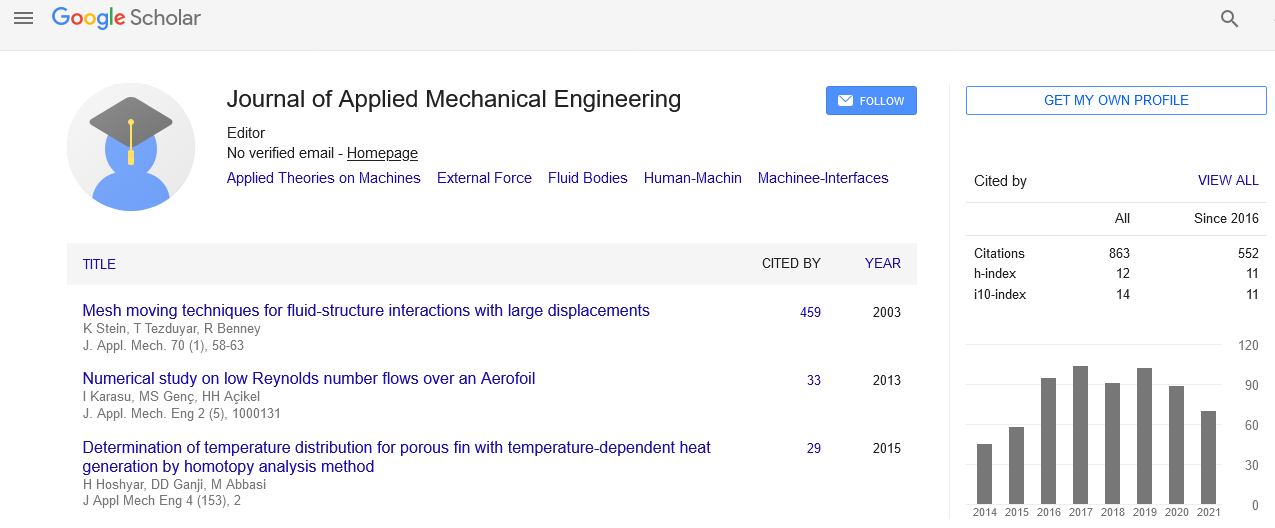Indexed In
- Genamics JournalSeek
- JournalTOCs
- CiteFactor
- RefSeek
- Hamdard University
- EBSCO A-Z
- OCLC- WorldCat
- Publons
- Google Scholar
Useful Links
Share This Page
Journal Flyer

Open Access Journals
- Agri and Aquaculture
- Biochemistry
- Bioinformatics & Systems Biology
- Business & Management
- Chemistry
- Clinical Sciences
- Engineering
- Food & Nutrition
- General Science
- Genetics & Molecular Biology
- Immunology & Microbiology
- Medical Sciences
- Neuroscience & Psychology
- Nursing & Health Care
- Pharmaceutical Sciences
A possibility for a cleaner transport: Non-thermal plasma technology
International Conference on Design and Production Engineering
July 25-26, 2016 Berlin,Germany
Marquidia Pacheco, Joel Pacheco, Ricardo Valdivia, Alfredo Santana and Carlos Alvarez
National Institute for Nuclear Research, Mexico
Monterrey Institute of Technology and Higher Education, Mexico
Posters & Accepted Abstracts: J Appl Mech Eng
Abstract:
It is widely known that the use of fossil fuel produces toxic gases emissions, like greenhouse gases and nitrogen oxides (NOx). Nevertheless, the impact of biofuels also has adverse health effects and a critical role in the tropospheric chemistry (i.e. ozone precursor); it has been proved that their combustion could emit higher NOx concentrations, carbonyl compounds and polycyclic aromatic hydrocarbons, identified as toxic, mutagenic and/or carcinogenic. Therefore, is very important to study post combustion technologies; in this particular case a non thermal plasma reactor is proposed to treat several toxic emissions (NOx, sulfur dioxide, hydrocarbons and particulate matter). We will present experimental results obtained from the treatment of these products with non-thermal plasma. Several reactor configurations are here depicted, highlighting the importance of main experimental parameters; key radicals enabling better removal efficiencies have been elucidated from simple chemical models. Good removal efficiencies at low power input (<80W) are obtained, outlining the plasma as a feasible technology.
Biography :
Marquidia Pacheco has a PhD in Physics and Engineering of Plasmas at the University Paul Sabatier, France. She actually works on environmental plasma applications (nanotubes based super-capacitors, syngas, automotive emissions). She has published more than 43 papers in reputed journals, 2 chapters books, 3 patents, 125 congress and has received L’Oreal –UNESCO award: for Women in Science, Mexico.

